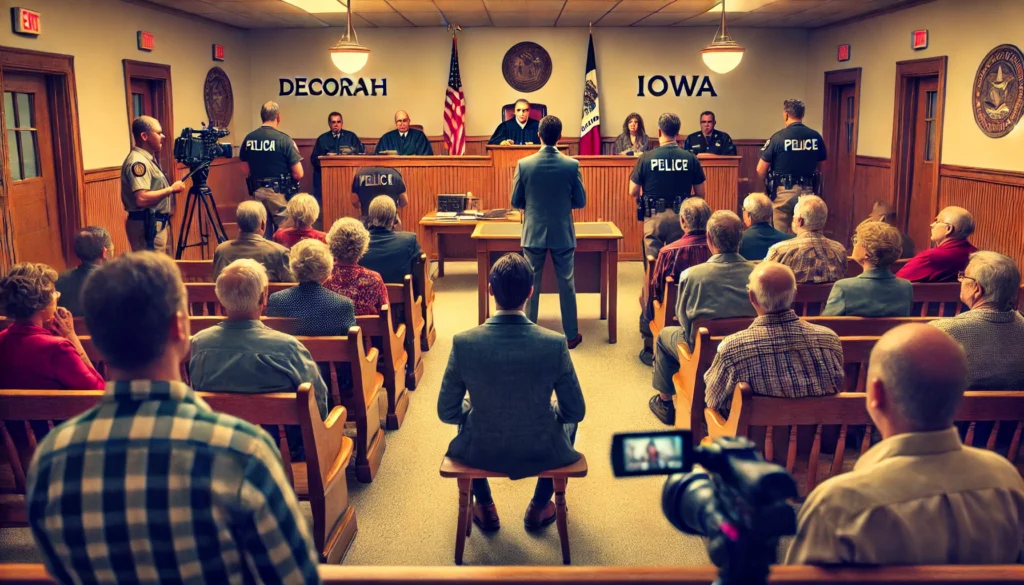
The small town of Decorah, Iowa, recently witnessed a significant financial fraud case that shook its community. A woman was accused of check forgery, targeting Brincks, a prominent local business. This detailed article delves into every aspect of the case, providing a thorough understanding of the events, the investigation process, and its wider implications.
Introduction to the Incident
In late 2024, the community of Decorah was stunned by the revelation of a financial crime involving a local woman and Brincks, a respected establishment in the town. The woman allegedly forged checks to withdraw funds illegally, causing substantial financial losses and raising concerns about security practices within the community. This incident serves as a stark reminder of the vulnerabilities even in tight-knit towns.
Background Information
About Decorah, Iowa
Decorah is a picturesque town in northeast Iowa known for its close-knit community, scenic landscapes, and vibrant local businesses. With a population of just over 7,000, the town’s charm lies in its small-town appeal and trust among residents.
Profile of Brincks
Brincks, a cornerstone of Decorah’s business landscape, has served the community for decades. Known for its commitment to quality and customer satisfaction, Brincks has been a trusted name in the region. The forgery case not only affected the business financially but also dented the trust it had built over years.
Detailed Account of the Incident
Discovery of the Forgery
The forgery came to light when Brincks noticed discrepancies in its financial records. Checks appeared altered, with unauthorized amounts and forged signatures. A thorough internal review confirmed the fraudulent activities, prompting the business to alert local authorities.
Methods Employed
The accused allegedly manipulated legitimate checks by altering their details, including payee names and amounts. These altered checks were then used for unauthorized transactions, ranging from withdrawals to purchases.
The Investigation Process
Law Enforcement Involvement
Upon receiving the report, local law enforcement acted swiftly. Investigators collaborated with banks and financial experts to trace the origin and flow of the fraudulent checks. This collaborative approach was crucial in building a strong case against the accused.
Evidence Collection
Key pieces of evidence included:
- Forged checks recovered from financial institutions.
- Surveillance footage showing unauthorized transactions.
- Testimonies from Brincks employees and bank officials.
Challenges Faced
The case posed several challenges, including sophisticated forgery techniques that initially masked the alterations. Additionally, tracing the funds required meticulous analysis of financial records.
Legal Proceedings
Charges Filed
The accused faced multiple charges, including theft and forgery under Iowa’s legal statutes. Each charge carried potential penalties, emphasizing the severity of the crime.
Court Hearings
During the hearings, prosecutors presented irrefutable evidence, while the defense argued mitigating circumstances. The case underscored the importance of robust evidence collection in financial crime investigations.
Sentencing and Penalties
The court’s decision included a prison sentence for the accused, alongside restitution payments to Brincks to compensate for the financial losses incurred.
Impact on the Community
Economic Repercussions
Brincks faced immediate financial strain, and the incident highlighted the need for enhanced security measures across local businesses. Customers, too, grew wary, leading to a temporary dip in economic activity.
Public Sentiment
The community’s trust was shaken, but many rallied around Brincks, supporting its recovery efforts. The incident sparked discussions on preventing such crimes in the future.
Media Coverage
Local and regional media extensively covered the case, raising awareness about financial fraud and its repercussions on small businesses.
Preventative Measures and Lessons Learned
Security Enhancements
Brincks and other businesses in Decorah implemented advanced security measures, including:
- Automated check verification systems.
- Regular financial audits.
- Employee training on fraud detection.
Community Awareness Programs
Local authorities and businesses launched initiatives to educate the public on identifying and preventing financial fraud. Workshops and seminars became common in the months following the case.
Policy Recommendations
Experts recommended stricter regulations for financial transactions, enhanced penalties for forgery, and better communication between businesses and banks.
Conclusion
The Decorah woman check forgery case involving Brincks is a cautionary tale of how financial fraud can impact small communities. Through a detailed investigation, legal action, and community support, Decorah has taken steps to recover and strengthen its defenses against future incidents. This case underscores the importance of vigilance, collaboration, and education in safeguarding financial integrity.
FAQs
What role did financial institutions play in uncovering the forgery?
Financial institutions played a critical role by flagging suspicious transactions and providing records that helped investigators trace the fraudulent activities. Their vigilance and reporting were instrumental in building a case against the accused.
How does Iowa law define check forgery, and what are the associated penalties?
In Iowa, check forgery is defined as intentionally altering or creating a false instrument to defraud another party. Penalties can range from fines to imprisonment, depending on the severity and financial impact of the crime.
Were other businesses in Decorah affected by similar fraudulent activities?
Although Brincks was the primary victim in this case, the incident prompted other businesses in Decorah to reassess their financial security measures, ensuring they were not vulnerable to similar crimes.
How can individuals detect forged checks in everyday transactions?
Individuals can spot forged checks by checking for inconsistencies in handwriting, irregularities in the signature, and alterations to the printed details. Verifying checks against account records is also a good practice.
What are some long-term impacts of financial crimes like check forgery on small towns?
Financial crimes can lead to economic strain on businesses, loss of community trust, and increased security costs for local businesses. However, they also drive communities to adopt stronger safeguards and foster greater awareness about financial fraud prevention.
Recommended Articles:
The Tragic Story of the Fisher Boys Drowning in Baton Rouge Off Harding Blvd
Sparkspitter Candle: A Complete Guide to Its Power, Mechanics, and Gameplay Mastery
The Ultimate Guide to Sonim Update via ADB and Fastboot: Step-by-Step Process
Matthew Pomyanovskyy: Transforming Businesses with Proven Strategies
Decorah Woman Check Forgery Brincks Case: A Comprehensive Guide








